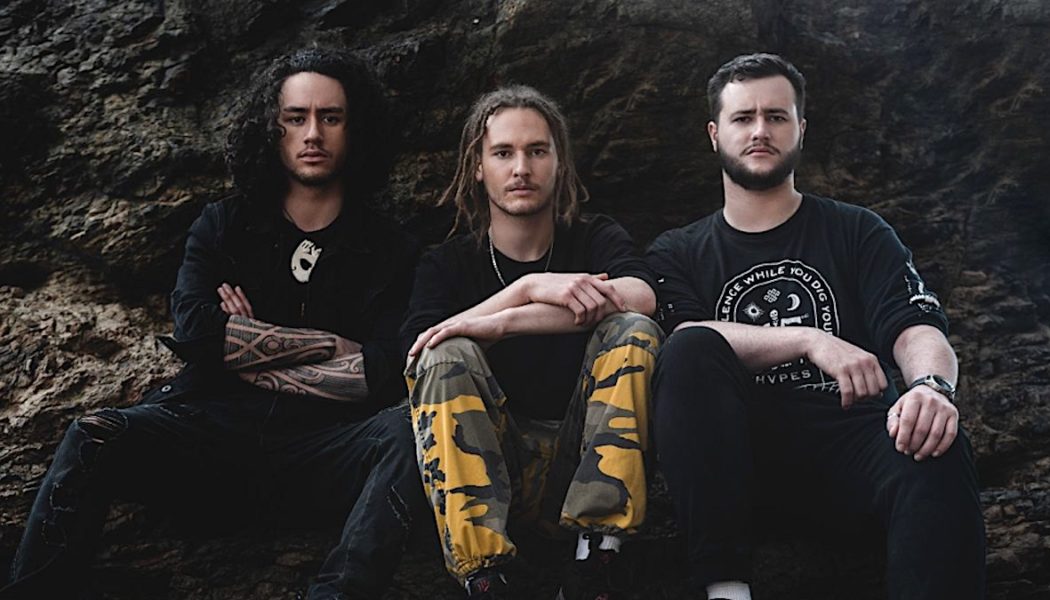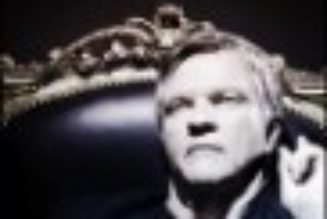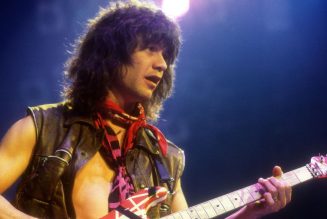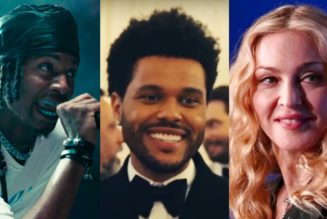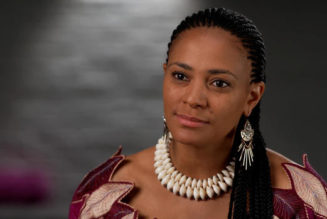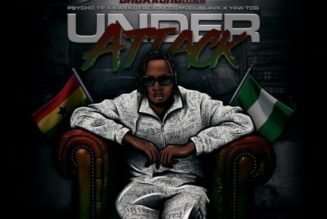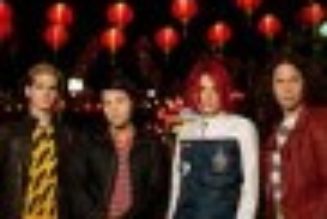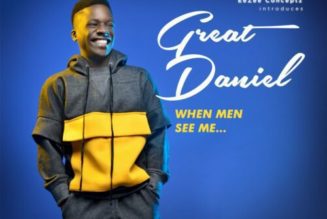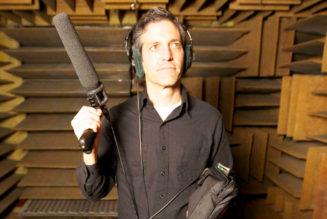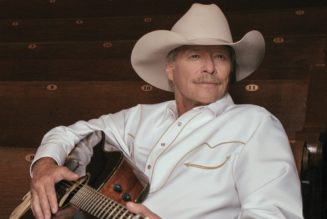
Heavy Culture is a monthly column from journalist Liz Ramanand, focusing on artists of different cultural backgrounds in heavy music, as they offer their perspectives on race, society, and more as it intersects with and affects their craft. The latest installment of this column features Lewis and Henry de Jong of Alien Weaponry.
New Zealand metal act Alien Weaponry have recently released their latest album, Tangaroa, and they also wrapped up a tour supporting supporting Gojira and Knocked Loose. The band’s music is written and sung in both Māori and English, with themes that center around the ideologies and history of the culture.
Heavy Consequence caught up with brothers Lewis de Jong (vocals, guitar) and Henry de Jong (drums) while they were on the road with Gojira. They spoke about touring in the time of COVID, as well as the new album and the video for its title track.
Related Video
The brothers also talked about their Māori heritage and roots on their father’s side and connection to their Māori as well as creating and connecting more closely with this culture through their music.
Read our “Heavy Culture” interview with Alien Weaponry’s Lewis de Jong and Henry de Jong below.
On returning to the road after the long pandemic break
Henry de Jong: It’s been awesome, we really enjoy playing for Gojira’s crowd and I think we’re winning over some new fans on this one which is always a positive.
Lewis de Jong: It’s been good, we’re at the point where we’re getting in the groove of things. I think on tour, the first couple of shows are working out some technical hiccups but the last few shows have been super tight.
LDJ: We haven’t toured for like three years, it’s almost more fresh than it’s ever been. It’s a little weird at the current time because we’re so used to talking with the fans and meeting people so we’ve definitely had to change that which is weird for us. That’s part of the enjoyment is meeting people.
HDJ: Having to tour and follow some pretty strict COVID protocols while we’re here just to make sure the tour does actually happen has been a big challenge for us, not only in how we interact with fans but how we interact with the bands we’re playing with, as well. If one person on tour gets COVID then the entire tour stops but we’ve been careful and pretty lucky so far.
On headliners Gojira and fellow support act Knocked Loose
HDJ: We toured with Gojira as support a few years ago, we played a few festivals over here, and had a few good chats with them. They’re really nice guys. The guys in Knocked Loose are really good, as well, and we get to chat with them when doing changeovers and hang out in that sense and all of our crews get along really well. This tour is really a dream tour not only because we’re playing with some awesome bands but they’re really awesome people.
On the album Tangaroa and the meaning behind the title
HDJ: In Māori culture, he is the God or energy of the ocean so that song is about how we’re killing him and how we’re desecrating the oceans. For us it’s a song about something we grew up around and it’s hard to see all of the negative impacts that human life has had on the ocean in the past decades.
As far as deciding to name the album Tangaroa, we felt like it was something that encapsulated everything that we do because everything is affected by the ocean. In the video it says Ka Mate Te Moana … Ka Mate Tātou which means if the ocean dies, so do we.
On filming the video for the title track “Tangaroa”
LDJ: It was intense. It was quite a challenge filming in a chlorinated pool for four of five hours and keeping your eyes open underwater.
HDJ: And then driving home afterwards and hoping you don’t get pulled over by the cops and they go, “Mate, you look stoned.” [And you reply,] “No I’ve just been swimming in a chlorinated pool with my eyes open for four hours.”
On writing about Māori tradition and deciding between English and Māori lyrics
HDJ: For me, I generally write about things that interest me, things that I’m learning about and things that I’m passionate about. Songs like “Hatupatu” and “Īhenga” for example are stories I’ve known for a long time, it’s a part of me, who I am. When choosing to write in Māori or English, we’ll listen to it and go, “What does the song feel like?” It’s a bit of a fluid process.
LDJ: For me, it’s usually writing anything that’s on my mind. Sometimes I write things that are super personal or sometimes I’ll write about something more general, it really depends on my mood.
On what people should know about Māori culture
HDJ: Māori culture in many ways is closely represented — if you were to compare it to something else, it would be similar to Japanese culture. There’s a huge thing about respect in Māori culture. You have this hierarchy of people and the way you are is dictated by respect and the sacredness of something. There are a lot of Māori ideologies that are also quite similar [to Japanese culture].
Something that we’re trying to do,, as well, is not only sharing the language but also sharing the ideologies of how we grew up as Māori because we think we’ve benefitted from knowing where we come from.
LDJ: We grew up with it, going to a Māori school and it was being able to relate to our Māori side. Henry covered a lot of it but we’re trying to spread the language and the culture and it’s also a way for us to reconnect to it — we lost some of the language when we went to English speaking schools and when you’re not speaking it regularly you lose the ability to communicate. Writing in Māori is helpful to get back into that more.
HDJ: For us, it has been a strange journey because we’ve realized through doing this that you don’t actually hear Māori being spoken much at all in New Zealand which is the reason we forgot how to speak it after our Māori schooling.
On the difficulties Native Americans still face and how it compares to the treatment of the Māori people in New Zealand
LDJ: It’s definitely better than it was, there’s always room for improvement. New Zealand is still quite a few steps away of where it should be. We’re better than where we were 50 years ago. You still do experience racism, discrimination, oppression — those things are still issues in every part of the world.
HDJ: It’s interesting that you brought up Native Americans here in the US specifically — a large part of our fanbase in New Mexico and Arizona are Navajo and every time we play there it’s almost like going back home. I feel what we’re doing resonates with Native Americans here in the U.S. It’s really amazing to see people connecting with music sung in a language they don’t speak but they know where they’re coming from. It’s fantastic for us to see that it has a wider reach than New Zealand.
On how indigenous people and Māori people in New Zealand have responded to your music
HDJ: It’s been mostly positive from everywhere; I think New Zealand especially. We do get the odd negative comment — particularly us using Māori. It usually comes from someone who might be thinking they’re trying to do the right thing but maybe aren’t very well informed. They’re usually jumping online yelling about how white boys are speaking Māori and that’s not right and it’s like, first off we are Māori.
On their Māori ancestry and roots
HDJ: Our dad is Māori so it comes from that side of our family, our mother’s Dutch and our grandfather on our dad’s side is also Dutch so we have a lot of Dutch heritage but we also have Māori heritage. Having grown up in New Zealand, we learned a lot more about Māori heritage especially going to the immersion schools. For us, we connect more heavily with our Māori family in New Zealand; it’s a huge part of who Lewis and I are.
On growing up in New Zealand and their initial exposure to music
LDJ: The biggest musical inspiration for us would be our dad. He was always playing records, anything from Pink Floyd to Rage Against the Machine to Public Enemy to classical music and everything in between. Growing up, we were always encouraged by music because dad was into it and played in bands growing up.
HDJ: [Dad] bought you a guitar when you were really young. Lewis was obsessed with guitar when he was just a few years old so when he was three he got this tiny little miniature guitar which he ended beating up with a guitar jack [cable]. It still works surprisingly which is pretty cool.
LDJ: It was all about the aesthetics, I was going for the distressed look.
HDJ: Musical instruments were a huge part of our upbringing and our family in general. I was about eight when I got my first drum kit. I could see Lewis was taking interest in guitar but I’d always been a little bit more drawn to drums so it kind of just worked out that way. We grew up in a very musical household. … [Our dad] actually does our front of house sound. He used to be an audio engineer at some pretty nice studios in New Zealand.
On what’s on the horizon for Alien Weaponry for 2022
HDJ: We’ve got a European tour starting next year where we’ll also be playing with Gojira but we’ll be main support, which is cool. We’ll get to play a bit of a longer setlist. Touring with these guys has been fantastic and we can’t wait to keep going with it.
